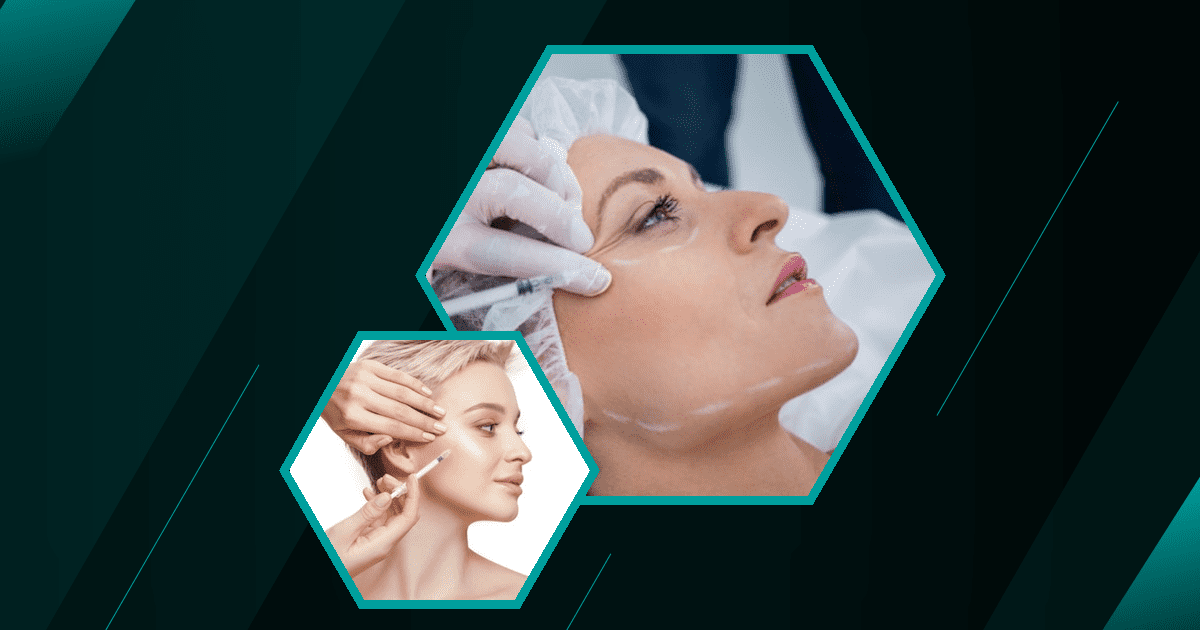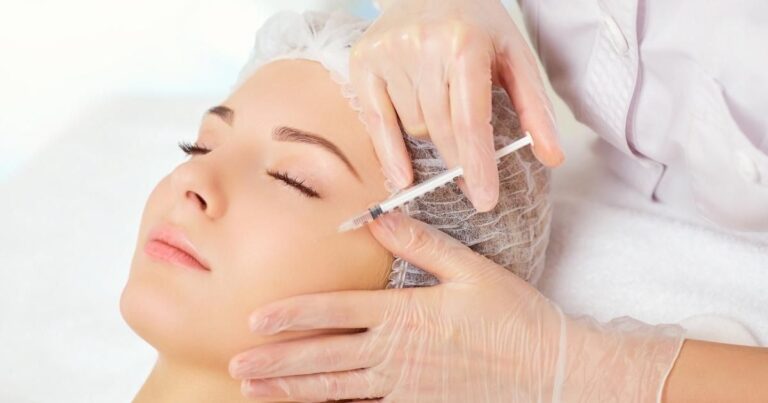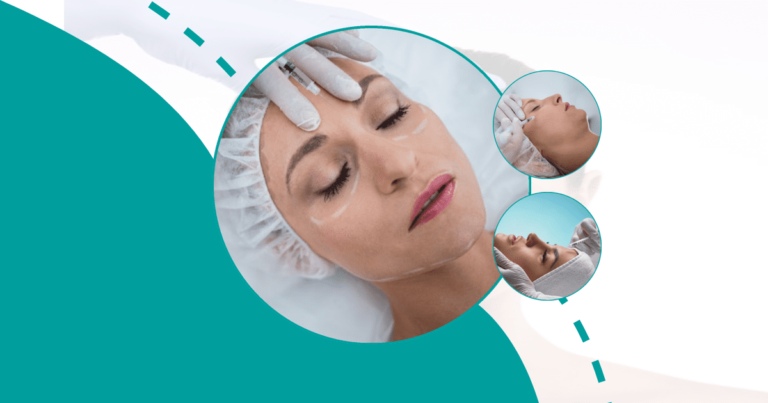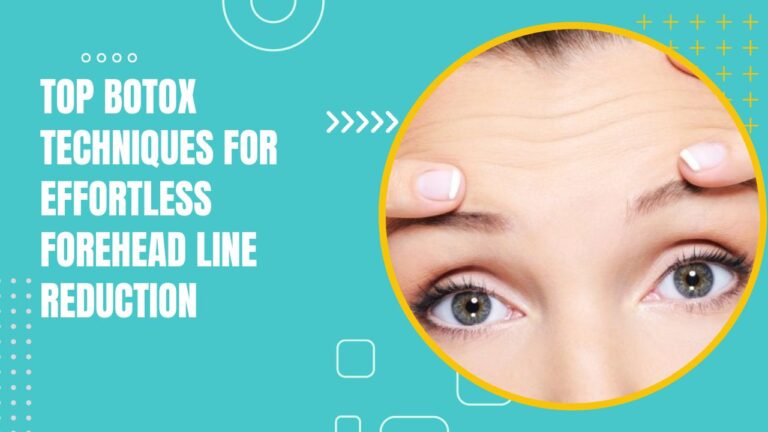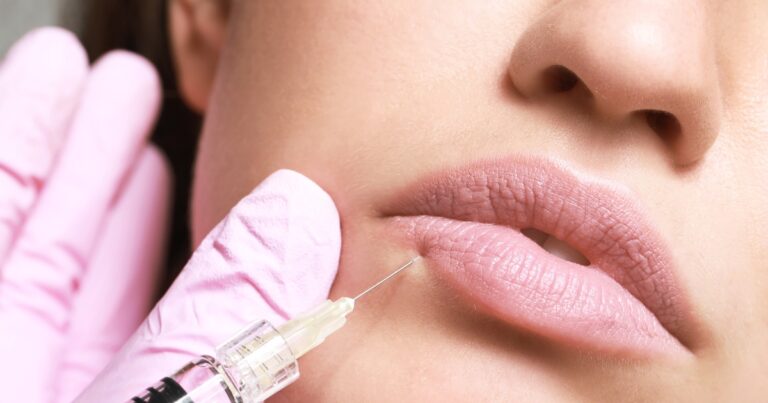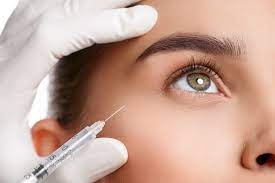Can Botox Cause Acne?
Botox, a popular cosmetic treatment, is often associated with wrinkle reduction and facial rejuvenation. However, some individuals have raised concerns about whether Botox can cause acne. This article delves into the connection between Botox and acne, exploring the science behind Botox injections, potential side effects, and how to minimize the risk of acne after treatment.
Can Botox Cause Acne
The Science Behind Botox Injections
Botox, or botulinum toxin, is a neurotoxic protein used to temporarily paralyze muscles, reducing the appearance of wrinkles. It works by blocking nerve signals in the muscles where it is injected. While Botox is primarily used for cosmetic purposes, it also has medical applications, such as treating migraines and excessive sweating.
Botox Cosmetic Injections are used to reduce wrinkles on the face
these injections temporarily relax muscles to make skin look smoother
Book A Consultation With Dr Tarek Bayazid
Top-rated Plastic Surgeon For Botox in Dubai
Installment Plan Available
- Botox is derived from the bacterium Clostridium botulinum.
- It temporarily relaxes facial muscles, smoothing out wrinkles.
- Botox is FDA-approved for cosmetic and medical uses.
Potential Side Effects of Botox
While Botox is generally considered safe, it can have side effects. These may include mild pain, swelling, or bruising at the injection site. In rare cases, patients may experience more severe reactions, such as muscle weakness or difficulty swallowing.
- Common side effects: pain, swelling, bruising.
- Rare side effects: muscle weakness, difficulty swallowing.
- Less than 1% of patients report acne-like breakouts.
Botox and Skin Reactions
Common Skin Responses to Botox Treatment
After receiving Botox injections, some individuals may notice changes in their skin. These can range from mild redness to more noticeable reactions. Understanding these responses can help differentiate between normal side effects and potential issues like acne.
- Redness and swelling are common post-injection.
- Bruising may occur but typically resolves quickly.
- Skin reactions are usually temporary and mild.
Differentiating Between Acne and Other Skin Issues
It’s essential to distinguish between acne and other skin reactions that may occur after Botox. Acne is characterized by pimples, blackheads, and cysts, while other reactions may include redness or irritation without pimples.
- Acne involves pimples, blackheads, and cysts.
- Other reactions may include redness or irritation.
- Proper diagnosis is crucial for effective treatment.
Factors That May Contribute to Post-Botox Breakouts
Injection Technique and Skill Level
The technique and skill level of the practitioner administering Botox can influence the likelihood of skin reactions. An experienced provider is more likely to minimize the risk of complications, including acne.
- Experienced providers reduce the risk of side effects.
- Proper technique is crucial for safe injections.
- Choose a qualified practitioner for best results.
Pre-existing Skin Conditions
Individuals with pre-existing skin conditions, such as acne or rosacea, may be more prone to breakouts after Botox. It’s important to discuss any skin concerns with your provider before treatment.
- Pre-existing conditions may increase breakout risk.
- Discuss skin concerns with your provider.
- Tailored treatment plans can address specific needs.
Aftercare and Skincare Routine
Proper aftercare and a consistent skincare routine can help minimize the risk of acne after Botox. Following your provider’s instructions and using gentle skincare products can promote healing and reduce irritation.
- Follow aftercare instructions carefully.
- Use gentle, non-comedogenic skincare products.
- Avoid touching or rubbing the injection site.
How to Minimize the Risk of Acne After Botox
Choosing a Qualified Provider
Selecting a qualified and experienced provider is crucial for minimizing the risk of acne and other side effects. Research potential providers and read reviews to ensure you choose a reputable practitioner.
- Research providers and read reviews.
- Verify credentials and experience.
- Choose a provider with a strong track record.
Preparing Your Skin for Treatment
Preparing your skin before Botox can help reduce the risk of breakouts. This may include cleansing your skin thoroughly and avoiding certain skincare products or treatments before your appointment.
- Cleanse skin thoroughly before treatment.
- Avoid harsh skincare products pre-treatment.
- Discuss preparation steps with your provider.
Post-Treatment Care Tips
Following post-treatment care instructions is essential for minimizing the risk of acne. This may include avoiding strenuous activities, not touching the injection site, and using recommended skincare products.
- Avoid strenuous activities post-treatment.
- Do not touch or rub the injection site.
- Use recommended skincare products for healing.
Alternatives to Botox for Wrinkle Reduction
Non-invasive Options
For those concerned about the potential side effects of Botox, non-invasive alternatives are available. These options can provide wrinkle reduction without the need for injections.
- Dermal fillers for volume and wrinkle reduction.
- Laser treatments for skin rejuvenation.
- Chemical peels for smoother skin texture.
Natural Remedies for Skin Rejuvenation
Natural remedies can also help improve skin appearance and reduce wrinkles. These options may include lifestyle changes, dietary adjustments, and the use of natural skincare products.
- Maintain a healthy diet rich in antioxidants.
- Stay hydrated for plump, youthful skin.
- Use natural skincare products with anti-aging properties.
Stats:
1. According to the American Society of Plastic Surgeons, Botox injections were the most popular minimally invasive cosmetic procedure in 2020, with over 4.4 million procedures performed. (Source: https://www.plasticsurgery.org/news/plastic-surgery-statistics)
2. A study published in the Journal of Clinical and Aesthetic Dermatology found that less than 1% of patients experienced acne-like breakouts after Botox treatment. (Source: https://www.ncbi.nlm.nih.gov/pmc/articles/PMC2921757/)
FAQ’s
Does Botox Cause Acne in All Patients?
Botox does not cause acne in all patients. In fact, acne-like breakouts are rare, affecting less than 1% of individuals who receive Botox injections. Most patients experience no significant skin issues post-treatment.
How Long Does Acne Last After Botox Treatment?
Acne that occurs after Botox treatment is typically temporary. Most breakouts resolve within a few weeks with proper skincare and treatment. If acne persists, consult a dermatologist for further evaluation.
Can Botox Help with Existing Acne?
Botox is not a treatment for acne. However, it may help reduce oil production in some individuals, potentially improving acne symptoms. Consult with a dermatologist to explore appropriate acne treatments.
Are There Any Long-term Effects of Botox on Skin Health?
Botox is generally considered safe for long-term use, with no significant adverse effects on skin health. Regular treatments can maintain wrinkle reduction without compromising skin integrity.
How Often Can You Get Botox Without Increasing Acne Risk?
The frequency of Botox treatments varies based on individual needs and goals. Most patients receive injections every 3-4 months. Consult with your provider to determine the best schedule for your skin type and concerns.
